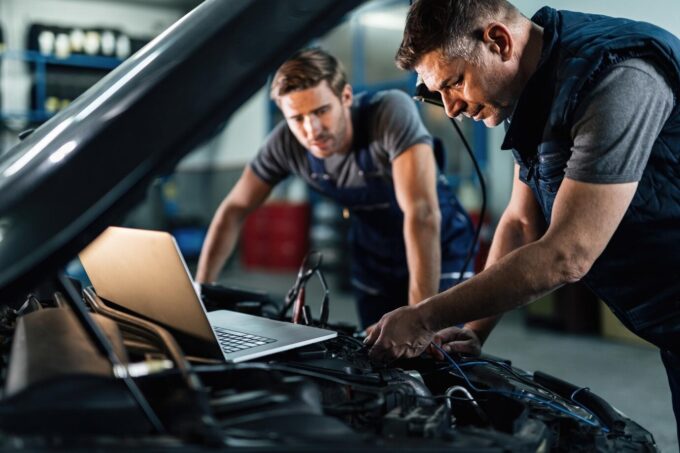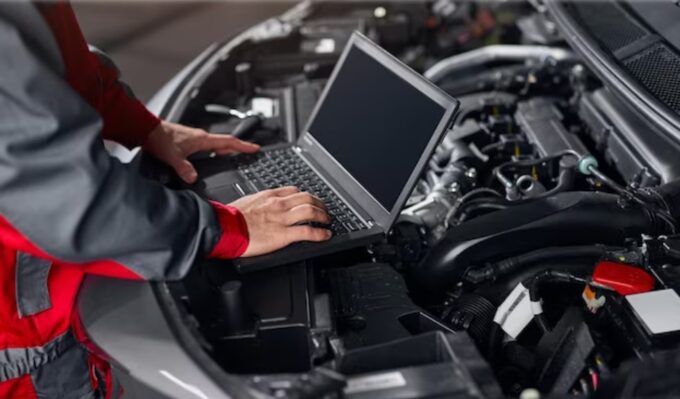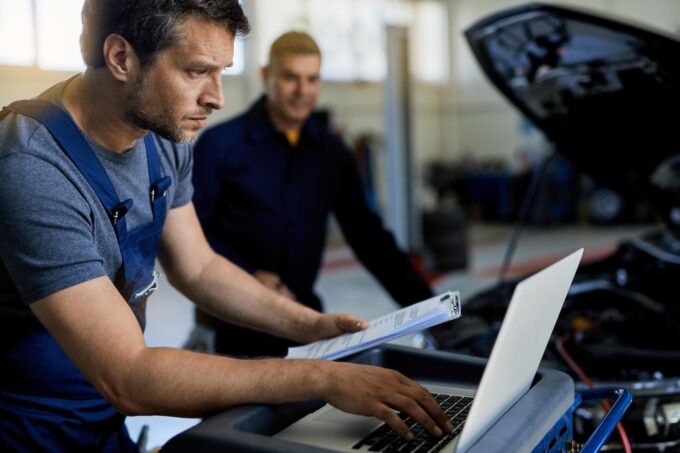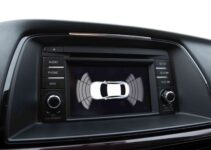Chiptuning refers to modifying a vehicle’s Engine Control Unit (ECU) to improve performance. This practice, increasingly popular among car enthusiasts, involves adjusting the software controlling the engine, leading to increased power, torque, and sometimes better fuel efficiency.
Mastering chiptuning is a rewarding journey for those passionate about enhancing their vehicle’s capabilities. It’s not just about increasing horsepower; it’s about optimizing the entire engine system to achieve a more responsive and efficient driving experience. This guide aims to equip you with the knowledge and skills to safely and effectively engage in chiptuning.
Safety First

Source: freepik.com
When delving into chiptuning, safety must be your top priority. This process involves significant changes to your vehicle’s engine, which can pose risks if not done correctly. Always use the recommended safety gear, including gloves, eye protection, and appropriate clothing.
Familiarize yourself with the best practices in the field. This includes understanding the specific risks associated with modifying your car’s ECU and how to mitigate them. It’s also crucial to work in a safe environment – a well-ventilated area, free of flammable materials. Remember, a safe approach to chiptuning not only protects you but also ensures the longevity and reliability of your vehicle.
Understand the Basics
Before diving into chiptuning, it’s essential to understand its fundamentals. At the core of chiptuning is the Engine Control Unit (ECU) as one of the main Chiptuning tools. It’s the computer that controls various aspects of your vehicle’s engine operation. By modifying the ECU’s software, you can adjust settings like fuel injection, air to fuel ratio, and ignition timing.
These adjustments can lead to significant improvements in performance. However, it’s crucial to have a basic understanding of engine mechanics and how different elements interact. This knowledge helps in making informed decisions about the adjustments you make, ensuring they are beneficial and not detrimental to your vehicle’s overall performance.
Research and Learning
Gaining in-depth knowledge is crucial for successful chiptuning. Start by researching the basics of car engines and how ECUs work. This can be through books, online forums, and courses. It’s important to understand the theory behind engine operation and the role of the ECU. Joining online communities or forums can also be invaluable.
These platforms allow you to learn from experienced tuners, ask questions, and share your experiences. Attending workshops or seminars can further enhance your understanding. Remember, the field of chiptuning is constantly evolving, so staying informed about the latest trends and techniques is essential for anyone serious about mastering this skill.
Quality Tools & Equipment
Investing in high-quality tools and equipment is fundamental for effective chiptuning. Essential tools include a reliable ECU tuning device, a laptop with the necessary software, and various diagnostic tools. High-quality tools not only make the process smoother but also ensure the safety and reliability of your modifications.
Avoid cutting corners with cheap equipment, as this can lead to inaccurate modifications and potentially damage your vehicle. Additionally, investing in a good set of mechanical tools for any physical adjustments to the vehicle is advisable. High-quality tools are a long-term investment that will pay off in the quality and reliability of your chiptuning projects.
Software Options

Source: freepik.com
Choosing the right chiptuning software is a crucial step in the process. Popular options include WinOLS, ECM Titanium, and RaceROM. Each software has its features and functionalities, catering to different needs and levels of expertise. Some offer more in-depth customization options, while others are more user-friendly for beginners.
It’s important to select software that is compatible with your vehicle’s ECU and meets your specific tuning goals. Researching and reading reviews from other users can help you make an informed decision. Remember, the software is a tool to aid your tuning process, and the right choice can significantly impact the success of your modifications.
Vehicle Compatibility
Not all vehicles are equally suitable for chiptuning. It’s important to determine if your vehicle is a good candidate. This involves understanding its existing engine configuration, the type of ECU it uses, and its overall condition. Some vehicles, especially older models, may not respond well to ECU modifications.
Additionally, some ECUs are easier to reprogram than others. Research your vehicle’s make and model to understand its potential for chiptuning and any limitations it may have. Be aware of the risks involved, as some modifications might void the vehicle’s warranty or not comply with local regulations.
ECU Reading and Writing
The process of reading and writing data to the ECU is central to chiptuning. This involves connecting a tuning device to the ECU and using software to modify the engine parameters. The first step is usually to ‘read’ the existing map from the ECU, which serves as a baseline for modifications.
It’s important to use reliable tools and techniques for this task to ensure accurate data transfer. After modifications, the new map is ‘written’ back to the ECU. This process requires precision and understanding of the software and the vehicle’s engine to avoid errors that could damage the engine or ECU.
Data Backup

Source: freepik.com
Before making any changes to the ECU, backing up the original data is essential. This ensures that you can restore the vehicle to its original settings if needed. The backup process involves saving the original ECU map on a reliable storage device.
It’s important to ensure the backup is complete and accurate. This step is often overlooked but is critical for safe chiptuning. In case of any issues during the tuning process, having a backup allows for a quick and safe recovery of the vehicle’s original settings.
Hands-On Practice
Practical experience is key in mastering chiptuning. Start with simpler projects to build your confidence and skills. Practice reading and writing ECU maps on less complex engines before moving to more advanced ones.
Hands-on experience helps you understand the nuances of different vehicles and ECUs. It’s also a good idea to work under the guidance of an experienced tuner initially. This can provide valuable insights and tips, helping you avoid common mistakes. Remember, practice makes perfect, and every project you undertake adds to your expertise in chiptuning.
Tuning Techniques
Advanced chiptuning involves a range of techniques to optimize engine performance and efficiency. These can include adjusting the air-fuel ratio for better combustion, changing the ignition timing for more power, or tweaking the turbocharger settings for increased boost. Each vehicle and engine type may require a different approach.
It’s important to understand the impact of each adjustment and how they work together. Experimenting with different settings and observing the results can help you develop a deeper understanding of tuning techniques. Additionally, keeping up with the latest developments in engine technology and tuning methods can provide new insights and ideas for your projects.
Continuous Learning

Source: freepik.com
The world of chiptuning is always evolving. Stay updated with the latest technologies, tools, and techniques. Regularly participating in online communities and forums is a great way to keep learning.
These platforms allow for knowledge sharing and staying informed about industry trends. Attending trade shows, workshops, and seminars can also enhance your understanding and skills. Continuous learning ensures that you remain at the forefront of chiptuning, enabling you to make the most informed and effective modifications to your vehicle.
Conclusion
Chiptuning is a rewarding skill that enhances vehicle performance. Remember, it requires a combination of knowledge, the right tools, and practical experience. By following these tips and continually learning, you can become proficient in chiptuning, ensuring safe and effective modifications to your vehicle.
Embrace the journey of mastering chiptuning, and enjoy the enhanced driving experience it brings.







